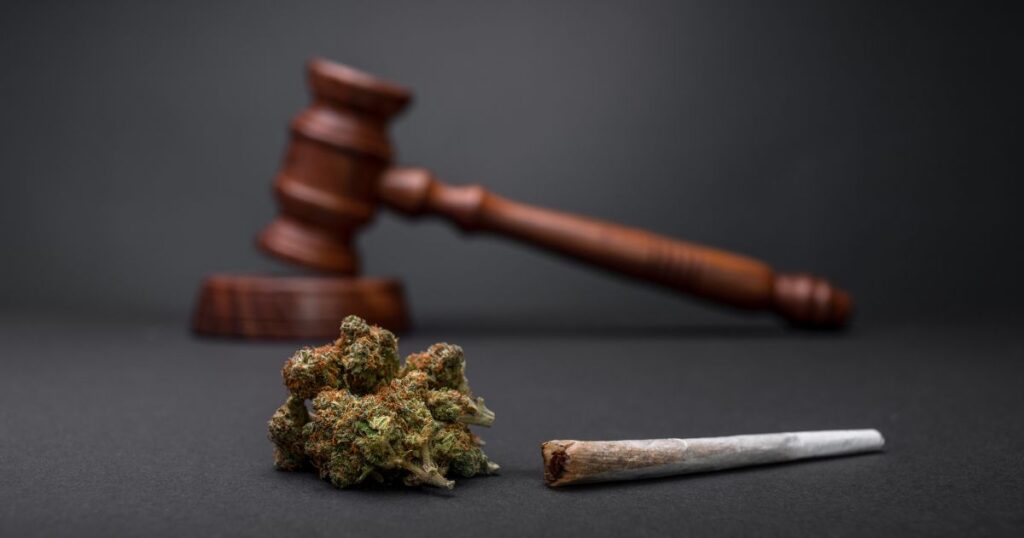Minnesota– Homegrown cannabis is at the center of a crucial turning point in Minnesota regarding cannabis regulation and citizens’ rights, with a recent lawsuit challenging the state’s authority over its sale. This issue has attracted significant attention from both cannabis supporters and legal analysts nationwide.
Consequently, Minnesotans have initiated significant legal action against the Office of Cannabis Management (OCM), arguing that a historical constitutional provision allows them to sell homegrown cannabis without needing a state license.
This legal move is based on an amendment over a century old, initially meant to support farmers’ rights to sell their produce freely. The question now is whether this old provision applies to the sale of homegrown cannabis today. The lawsuit confidently claims that it does.

Root of the Homegrown Cannabis Lawsuit
This legal drama unfolds against the backdrop of an amendment deeply rooted in Minnesota’s agricultural traditions. The broader context is Minnesota’s move to legalize cannabis last year, and the current legal challenge aims to address the rules around cannabis cultivation and sales as first reported by MinnPost.
Four Minnesotans, including medical cannabis patients, are the plaintiffs. They argue that, due to the high costs of home cultivation for medical use, it becomes necessary to sell any surplus, balancing financial viability with patient needs—a reasonable standpoint.
The essence of the argument lies in interpreting Article 13, section 7 of the Minnesota Constitution, a provision historically designed to empower farmers. In the new age of legal cannabis, this lawsuit (provided by MinnPost) proposes an extended interpretation of the word “farm products” to include cannabis, blurring the lines between traditional agriculture and modern home cultivation.
Should the court side with the plaintiffs, the implications are significant. Not only would it underscore the evolving relationship between citizens and the state concerning cannabis, but it would also carve out a niche for home growers within Minnesota’s broader legal and economic frameworks.
What This Means for Minnesota and Beyond
The potential ripple effects of this lawsuit extend far beyond the individual right to sell homegrown cannabis. It beckons a reassessment of state authority, the definition of agricultural products, and the route toward cannabis normalization.
Minneapolis attorney Jeffrey O’Brien, representing the plaintiffs, articulates a simple yet profound argument: respect the constitutional rights of home growers while adhering to regulated legal thresholds for cultivation and sale.
“As long as we stay within the lanes that you set up in terms of rules and regs, as long as we limit it to what can be grown legally, it would seem straightforward that you’re able to sell the products off of those plants per article 13, section 7 of the constitution,” O’Brien said.
At its heart, this case is not about unrestricted cannabis commerce but the right to engage in modest, regulated sales within the confines of one’s rights as a home grower. It challenges the state’s role in navigating between the guardrails of public safety, economic interest, and constitutional freedoms.
Leading a Path Forward?
As the legal situation develops, the wider cannabis community is paying close attention. The outcome could signal a possible shift in how states balance regulatory control with individual rights in the realm of cannabis. It also prompts deeper considerations around the nature of farming rights, product sale, and the intricate dance between state regulation and constitutional freedoms.
Should this case sway in favor of the plaintiffs, it may set a precedent that ripples far beyond Minnesota’s borders, prompting a national dialogue on the rights of cannabis growers and the scope of state intervention.

As Minnesota explores new ground, the future of cannabis laws and constitutional rights in the United States remains uncertain. Consequently, this lawsuit goes beyond the issue of selling extra homegrown cannabis plants; it highlights the broader debate on how laws adapt to changing societal views and uphold constitutional rights.
This case is of interest to cannabis enthusiasts, legal experts, and Minnesota residents, offering insight into the changing landscape of cannabis regulation. It raises the question—could Minnesota lead to a new perspective on farming in the 21st century?





















